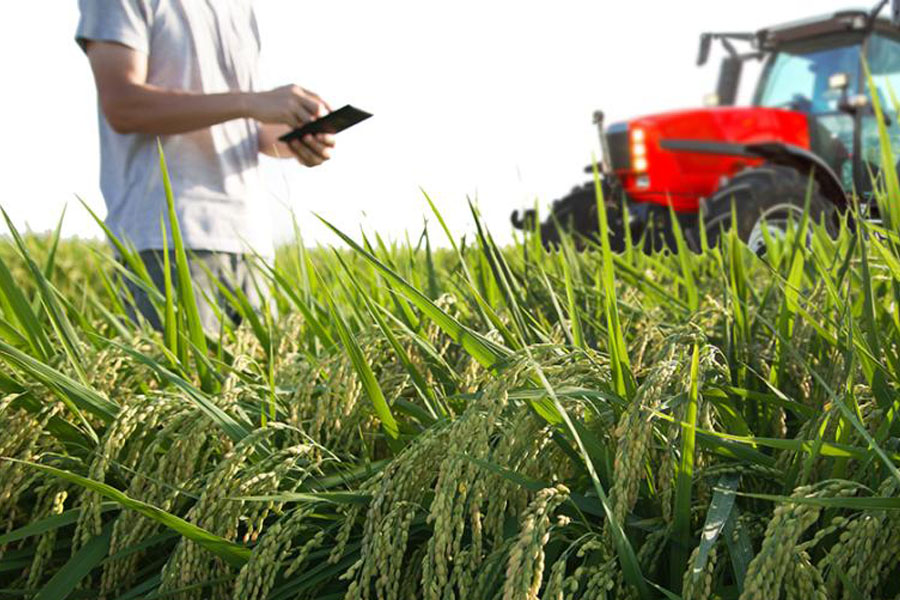The agricultural sector provides a vital source of income for many people living in rural areas of Botswana; hence, it is crucial that agricultural output be maximized to assure rising farm incomes. Increases in agricultural output are strongly influenced by improvements in agricultural machinery and technology. Increases in farm revenues are a direct result of the rapid improvement in agricultural machinery and technology. To better understand the challenges encountered by academics, agricultural extension workers, and farmers, it might be instructive to look back at earlier efforts to create agricultural technology and agricultural machinery for traditional farmers, particularly resource-poor farmers in Botswana. As a result of this data, we will be able to examine the challenges and successes encountered throughout the process of creating and spreading technologies, and we may work to refine our approaches to better serve farmers with limited access to resources. This method will increase the pace at which new agricultural machinery and technologies are adopted, leading to higher farm output. Increases in the agricultural output should eventually boost the earnings of resource-starved farmers.
Development and Dissemination of Agricultural Technologies for smallholder farmers
Botswana’s previous generations had previously come to the conclusion that their country’s farmers were either not exposed to or unwilling to use many of the available technological advancements. Due to the huge yield gap and identified issues with technology transfer, it was decided to begin testing technologies in farmer fields. Low farmer technology adoption is the primary challenge confronting efforts to develop and communicate technical breakthroughs to Botswana’s resource-poor farmers. The Department of Agricultural Research of the Ministry of Agriculture has made available a number of innovations throughout the years, although they have not seen widespread use. Double ploughing is a technique that has been shown to increase crop yields by a factor of two, although it has been used by relatively few farmers. Improved crop varieties, integrated pest control strategies, and enhanced crop management practices are some other promising technologies that have been embraced by just a small fraction of farmers.
Farm revenues in Botswana were significantly affected by the availability of reliable draft power infrastructure. The average overall farm earnings of resource-poor farmers with sufficient draft power were significantly greater than those of farmers with insufficient draft power. Due to their greater productivity, farms that rely on agricultural machinery and tractors tend to earn more profits than their draft-powered counterparts. Average overall farm revenue was highest for farms operating with agricultural machinery and tractors, and lowest for farms using donkeys and oxen. A farm family’s overall income increases when they have access to reliable draft power equipment.
Farmers’ reluctance to adopt new technologies can be attributed to a number of factors, including a lack of farm implements, a high workload, insufficient resources, unpredictable weather, a lack of draft power, a dearth of available labor, an absence of suitable seeds, or a lack of perceived benefits. By engaging with farmers to help them realize the potential advantages of the innovations and by subsidizing the purchase of some of these innovations that resource-poor farmers cannot afford, we may help them overcome the main obstacles to adopting these technologies.
Development of Farming Systems Approach (FSA) to Technology

The FSA is based on the idea that farmers themselves should be involved in determining and redesigning their proper growth path in terms of taking part in the invention and diffusion of technologies relevant to their own socio-economic situations. As a result, the FSA has prioritized adaptive research, in which better technologies are tailored to the unique environmental circumstances that farmers must deal with, and in which information on upcoming research priorities is fed back to experimental research stations to aid in the development of improved technologies. In Botswana, where it has evolved and developed, the FSA has offered a system for understanding the technical, human, and environmental challenges farmers face. It has also served as a channel for farmers to communicate important research priorities to experimental stations and as a tool for assessing technologies in a system’s context using factors pertinent to farmers’ environments.
Evidence of the government’s dedication may be seen in the supply of sufficient resources and the availability of qualified technical people for FSA operations throughout the country’s agricultural areas. In order to develop technologies that are suitable to farmers’ socioeconomic conditions, it will be crucial for farmers to engage in FSA operations alongside researchers and extension professionals.
Services Provided by Tractor Provider
Technology-based crop information systems have the potential to improve farmer literacy and the spread of new agricultural technologies and Tractor Provider can help the country’s farmers save a lot of money on much-needed agricultural machinery. Botswana’s smallholder farmers have a greater sense of safety because of Tractor Provider. Farmers are optimistic about the project’s future thanks to the wide availability of high-quality agricultural machinery such as Massey Ferguson tractors for sale and New Holland tractors for sale, as well as farm implements and combine harvesters.
